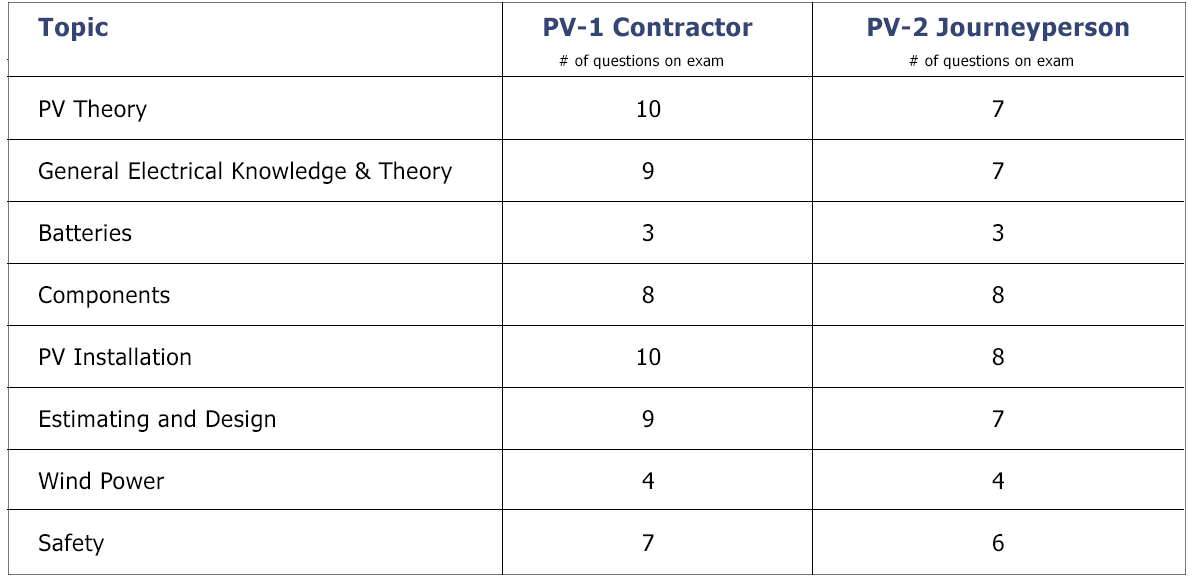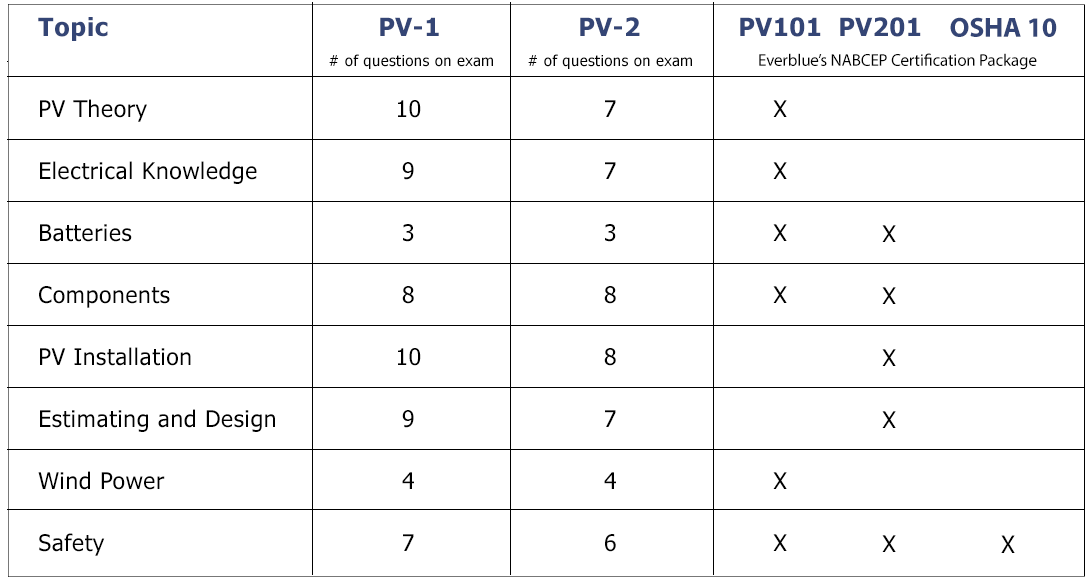No products in the cart.
How to Get a Solar PV License in CT
Like many trade occupations, your state may require that you obtain a contractor’s license to legally perform work in your area.
Since solar energy is a growing and evolving industry, some states haven’t yet developed licensure exams or protocol. Connecticut, however, does have specific licenses for solar energy professionals.
The Connecticut State Department of Consumer Protection is the authoritative body that manages solar contractor licenses in the state.
On the state website, you’ll find information about the various licenses and designations available for solar energy professionals.
To summarize, there are six main titles:
ST-1 Solar Thermal Contractor
ST-2 Solar Thermal Limited Journeyperson
STC-1 Solar Thermal Contractor
STC-2 Solar Thermal Limited Journeyperson
PV-1 Limited Solar Electric Contractor
PV-2 Limited Solar Electric Journeyperson
Solar Thermal vs. Solar Electric
First, you’ll need to determine which solar pathway you want to take – solar thermal (hot water heating) or solar electric (solar panels).

Journeyperson vs. Contractor
It’s interesting that the licenses are listed in the order that they are (1 for Contractor and 2 for Journeyperson), since you typically become a journeyperson before becoming a contractor.
A journeyperson must complete a registered apprenticeship or equivalent experience/training. The CT exam focuses solely on solar energy principles.
A contractor must work for at least 2 years as a solar journeyperson or have equivalent experience/training. The CT exam includes two parts – one portion on solar energy principles and one portion about business and law.
The general understanding is that a journeyperson is an entry-level professional who will be doing the hands-on solar installation, repair, and maintenance.
A contractor can also perform the hands-on work but will probably also go on to become a solar business owner and therefore has to have a stronger understanding of business and law.
Applying for a CT Solar License
To apply for a solar license in CT, you’ll want to review the application instructions and license forms available on the state website. The resulting 19-page PDF includes information about all six solar licenses.
The “bulletin,” as it’s called, was created by PSI Exams Online, which is the third-party test-proctoring organization that administers the CT solar licensure exams. If you visit the PSI website, you can find high-level information about the licenses by clicking on Government/State Licensing Agencies, choosing Connecticut, CT Occupational Trades, CT Solar Trades, and the specific classification that you’re interested in. There you’ll find information about exam fees and will have the ability to create an account.
The more detailed document, however, is the 19-page PDF on the CT state website. You’ll notice that the application instructions focus heavily on the state license exam, specifically exam scheduling, exam locations, computer-based exam information, and exam scores.
For each of the six licenses listed above, the application instructions document offers 2-3 paragraphs of guidance for those interested in pursuing the license.
The Scope of Work is a description of what the license will legally enable you to do.
The Content Outline provides a rough overview of topics that’ll appear on the state licensure exam.
The Reference List shares a few resources that can help you prepare for the exam.
That’s the extent of information that’s publicly available. If you have more detailed questions about the scope of work or content outline, you might consider calling the Connecticut State Department of Consumer Protection at (860) 713-6100 or viewing their Contact Us page.
How to Prepare for the CT Solar Licensure Exam
The Content Outline for the PV-1 Limited Solar Electric Contractor and PV-2 Limited Solar Electric Journeyperson cover similar topics:

At Everblue, we offer solar energy courses that cover these topics. While our courses were not designed specifically to align with the CT Solar License exams, the solar energy principles are included in our course curriculum.
If you’re relatively new to solar, the best course to take to qualify for the CT Solar License exams would be our NABCEP PV Installation Professional package. This package bundles together four courses that will take you from a beginner to a working solar professional in no time. The package includes our:
PV101 Solar Associate – 40 hours, online
PV201 Solar Installation – 40 hours, online
OSHA 10 Construction Safety – 10 hours, online
In the graphic below, you can see where and how these solar courses address the topics that will be on the CT solar licensure exams.

In addition to providing the conceptual knowledge for the CT Solar License exams, the NABCEP Certification Package will also help qualify for – you guessed it – NABCEP Certification!
Unlike a license, which is required by state law to offer services as a certain occupation, certification is a voluntary professional achievement that you can pursue to stand out from competitors and highlight your advanced depth of knowledge.
In other words, you can kill two birds with one stone with the NABCEP Certification Package – qualifying for a state license AND an internationally-recognized solar certification!
According to the Interstate Renewable Energy Council, the Connecticut Clean Energy Fund requires all approved eligible PV contractors to have at least one permanent employee successfully complete and pass the NABCEP entry level PV exam. The Refrigeration School also noted that Connecticut requires at least one employee to have NABCEP Certification. This information was not specifically listed on the CT state website, so if you contact the Department of Consumer Protection, this might be a good question to ask.
For more information about NABCEP Certification, please give us a call at (800) 460-2575.
